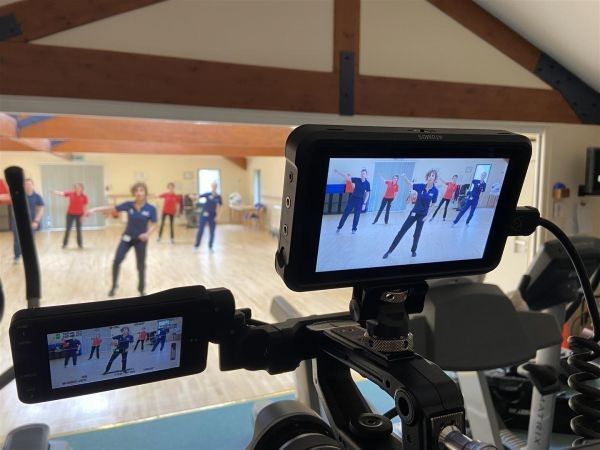Exercise Intensity – how often, how hard, how long
A short guide to your home exercise frequency, duration and intensity
By Dr Hugh Bethell
One of the important benefits of the Alton Cardiac Rehab exercise programme is the presence of our highly qualified exercise instructors to guide you and supervise your exercise programme.
Many of you will have become used to the security provided by such supervision.
This short article is to give you some guidance while you exercise at home.
Frequency
Three or four times per week is ideal – if you only do a little at a time you may need to exercise more often. The government guide suggests half an hour per day on five days per week but this 150 minutes can be made up of any exercise sessions/activities of ten minutes or more each.
Duration
Try to get in the 150 minutes or more per week. The exercise component of the home sessions which we send you by email each lasts about 40 minutes. To these can be added walking (briskly!), cycling or other moderately strenuous activities. Some gardening and house work tasks meet this level of activity and I have given a list of the exercise equivalence of these in my weekly Blog (https://exercisefitnessandhealth.info).
Intensity
This maybe a bit more difficult to assess. For most people it is enough for exercise intensity during their 150 (or more) minutes per week to be moderate. This means exerting yourself to the point of feeling mildly short of breath – you can still talk to your fellow exerciser but you cannot sing to them. And you should not be panting for breath.
Symptoms
These are some of the symptoms (and what to do about them) which you could experience during exercise. They are unlikely if you are sticking to my suggestions above:
- 1.Light-headedness. If you have over-exerted, particularly when it is very warm, your blood pressure may fall and make you light–headed. If this happens, stop and sit down and wait for the feeling to pass. If it does not do so quickly, lie down, ideally with your feet up, perhaps propped on a chair. If the light-headedness is severe it may take 15 to 20 minutes to resolve altogether. In this case let your doctor know.
- 2.Chest pain. Some of you suffer from angina and may get this during an exercise session. Angina is usually felt as a tight central chest pain, sometimes in the throat or left arm, brought on by exercise and settling with rest. If this happens, stop what you are doing, sit down and, if you have one, use your trinitrate spray. The pain should settle within a few minutes. If it does not do so you can use your spray again after five minutes. If this still does not clear the pain you should dial 999 for an ambulance.
If you are not an angina sufferer and develop a tight central chest pain during an exercise session, stop and wait for it to subside. If it has not done so within ten minutes, dial 999. If it does settle you should let your doctor know and avoid exercise until you have discussed it with him or her. - 3.Palpitations. Exercise sometimes causes or aggravates disorders of heart rhythm. Some exercisers are used to this and ignore it. If you are not in this group and you develop uncomfortable palpitations with exercise, stop and rest. If they do not settle quickly let your doctor know and don’t exercise again until you have discussed it with him/her. If you feel particularly unwell with the palpitations or if they do not settle quickly, dial 999.
HJN Bethell
May 2020



